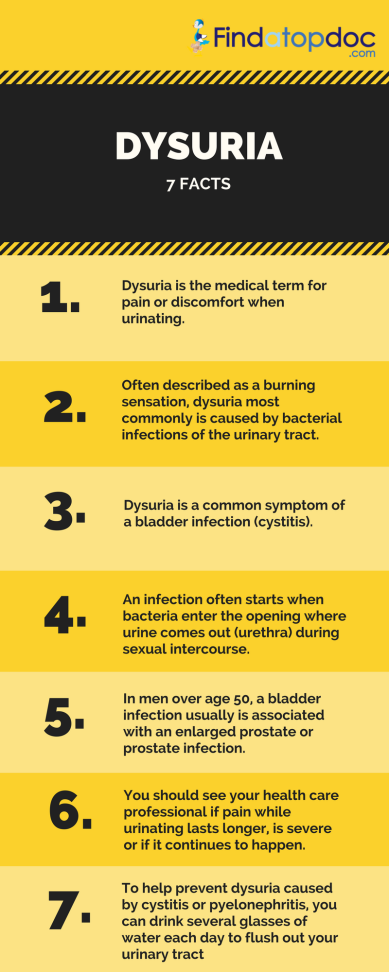
Source
Causes
Infection of the urinary tract (urethra, bladder, or kidneys) is the most common cause of dysuria. The most common type of infections are cystitis (bladder infection), pyelonephritis (kidney infection), prostatitis (prostate infection), and urethritis (inflammation of the tube, the urethra, that drains the bladder to the outside of the body). Other causes of dysuria include:
- Trauma: local injury or irritation due to catheter placement or sexual contact
- Anatomic obstructions/malformations: obstruction due to an enlarged prostate or urethral stricture
- Pain due to external lesions on the genitalia: Urine touching the lesion causes pain
Depending on the cause of dysuria, there may be other symptoms in addition to pain when urinating. Symptoms can include:
- Lower urinary tract infection (cystitis) — Frequent urination, an intense urge to urinate, loss of bladder control, pain in the lower front portion of the abdomen, cloudy urine that may have a strong odor, bloody urine
- Upper urinary tract infection (pyelonephritis) — Pain in the upper back, high fever with shaking chills, nausea and vomiting, cloudy urine, frequent urination, an intense urge to urinate
- Urethritis — A discharge from the urethra, redness around the opening of the urethra, frequent urination, vaginal discharge. Partners of people with urethritis that comes from a sexually transmitted disease often will not have any symptoms.